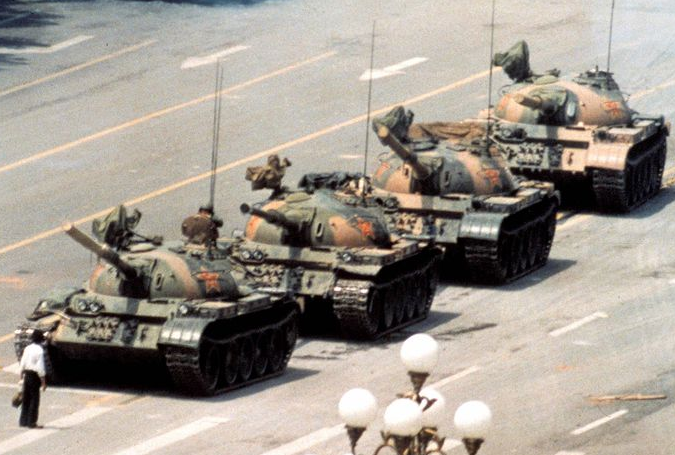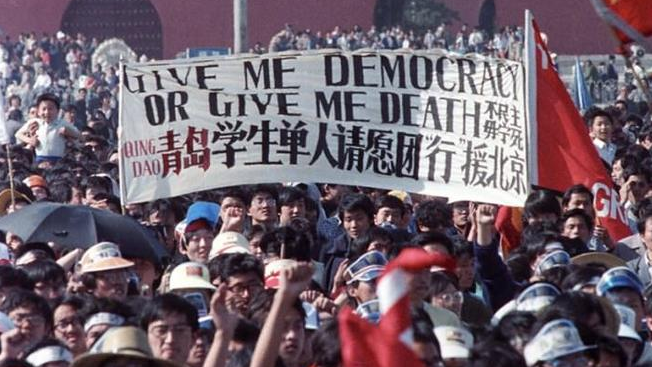The Chinese censorship machine is cranking up as the anniversary of the pro-democracy protests at Tiananmen Square approaches on June 4, according to Reuters. And, with the help of modern technology, censorship and authoritarianism is as easy as it’s ever been. Censors at Chinese internet companies say that blocking content related to the 1989 protests is now the easiest and most accurate it’s ever been with the help of machine learning, voice recognition, and image recognition.
One content screening employee at Beijing Bytedance Co Ltd said: “We sometimes say that the artificial intelligence is a scalpel, and a human is a machete.”
Two other employees of the company said that censorship is now largely automated. Posts in China that include the dates, images and names associated with the protests are automatically rejected.
One anonymous employee commented: “When I first began this kind of work four years ago there was opportunity to remove the images of Tiananmen, but now the artificial intelligence is very accurate.”
Four censors, working across companies like Bytedance, Weibo Corp and Baidu Inc, said that they censor between 5,000 to 10,000 pieces of information a day – which equates to about 5 to 7 pieces a minute. Most of the pieces of information they claim are pornographic or violent. And despite advances in artificial intelligence, current day tourist photos in the square are sometimes blocked by accident.
The crackdown is a relatively taboo subject in China, even three decades after the government sent the military to quiet student-led protests calling for democratic government reforms. Although Beijing has never released the death toll, estimates range from several hundred to several thousand.
June 4 will likely be a cat and mouse game – people use more obscure references on social media sites to allude to the protests, with the obvious ones blocked immediately. Some years, internet users haven’t even been able to use the word “today”.
And when China’s most watched stock index fell 64.8 points on the anniversary in 2012, censors blocked access to the term “Shanghai Stock Market” and the index numbers themselves. This is all despite the fact that the drop was likely a coincidence.
Tools for censorship are becoming more refined, analysts, academics and users say. They claim that sensitive periods before anniversaries and political events have become a dragnet, catching a wide range of sensitive content.
For instance, leading up to this year’s anniversary, censorship on social media has targeted LGBT groups, environmental activist activists and labor groups.
The Cyberspace Administration of China (“CAC”) has been responsible for most upgrades to censorship technology. The group was set up by President Xi Jinping, whose tenure has been defined by increasingly strict control of the internet. Last November, the CAC introduced new rules aimed at stopping dissent online in China, where “falsifying the history of the Communist Party” is a punishable offense. The new rules require assessment reports and site visits for any internet platform that could be used to “socially mobilize” or lead to “major changes in public opinion”.
One official that works for the CAC said that a recent boost in online censorship is very likely linked to the upcoming anniversary. They said: “There is constant communication with the companies during this time.”
Companies that are responsible for their own censorship get little direction from the CAC but are still responsible for creating guidelines on their own. And with President Xi’s continued grip on the internet, information continues to be centralized under the Communist Party’s Propaganda Department and state media network. Censors and company staff say that this reduces some pressure to censor events, including major political news, natural disasters, and diplomatic visits.
One employee at Baidu said: “When it comes to news, the rule is simple… If it is not from state media first, it is not authorized, especially regarding the leaders and political items. We have a basic list of keywords which include the 1989 details, but (AI) can more easily select those.”
The punishment for not censoring can be severe. Companies including a Netease Inc news app, Tencent Holdings Ltd’s news app TianTian, and Sina Corp have all been hit with suspensions ranging from days to weeks as a result of failing to properly censor. For individual internet users and activists, it could mean jail time.
Social media accounts in China are often linked to real names and national ID numbers by law and companies are legally mandated to offer the information to authorities when requested. One user, Andrew Hu said: “It has become normal to know things and also understand that they can’t be shared. They’re secret facts.”
Hu spent three days detained in 2015 after posting a comment about air pollution on an unrelated image that alluded to the Tiananmen protests. Hu said that when police came to his parents house he was surprised, but not frightened.
He concluded: “The responsible authorities and the internet users are equally confused. Even if the enforcement is irregular, they know the simple option is to increase pressure.”
via ZeroHedge News http://bit.ly/2JHaSlO Tyler Durden


